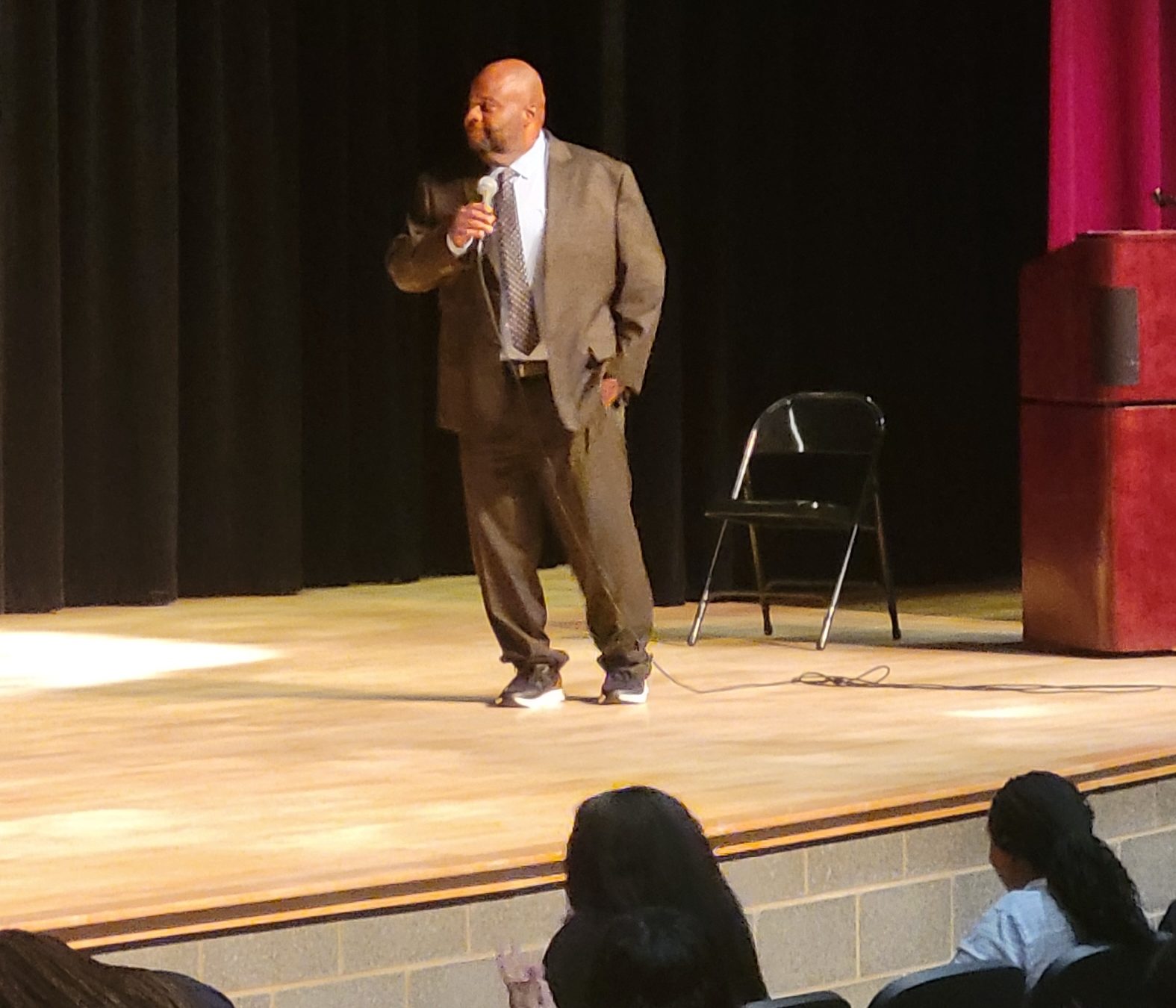Drop Your Buckets Where You Are: Reimagining Education in the Age of School Choice


by Corey Carter
Corey E. Carter is an educator with over twenty years of experience. His career has included teaching in inner-city and suburban schools, while his leadership experience has included work with the District of Columbia Public Charter School Board, Maya Angelou Public Charter School, and Prince George’s County Public Schools, the 18th largest school district in the U.S. He is a graduate of Albemarle High School and Virginia State University.
Interestingly enough, it’s 2025, and as Black Americans we find ourselves at the crossroads of yet another flashpoint in American history. Sometimes I wonder if there’s ever been a time where we haven’t been at the crossroads. This time, the stakes are as high as they’ve ever been. The shift toward what feels like a revival of McCarthyism—embodied in the new education policy from the Trump administration—presents significant challenges. The effort to erase “indoctrination” in American schools, under the guise of preventing balanced instruction, is gaining ground. It’s becoming a revisionist agenda through a controversial and powerful executive order about K-12 education. While it’s not hard to spot the many inconsistencies in the language of the order, what’s difficult is turning lemons into lemonade. Still, I have faith because I come from a people who have done far more than survive America’s convulsive tango dance with liberty and injustice.
Having been a product of the public school system—one that I believe had many strengths, though not without its flaws—I have concerns about the application of this radical right-wing agenda. However, my experience in the world of school choice—having worked with one of the nation’s largest and most progressive charter school authorizers, and later serving as a charter school administrator for a particularly challenging student population—gives me a different perspective. In light of this, I see an opportunity within the “Ending Radical Indoctrination in K-12 Schooling” executive order.
Propaganda, fake news, and half-truths aside, there’s one aspect of President Trump’s education platform that I can support: increasing opportunities for school choice and directing funding to support that initiative. In a time when the ground under our children’s education is increasingly unstable, and the ultimate aim of those promoting a more disillusioned product in the name of avoiding “indoctrination” is becoming clearer, we have an opportunity to “seize the time” and innovate.
Back in 1993, when I was a senior at Virginia State University, I was the Managing Editor of The Virginia Statesman, the student publication. I had the privilege of attending a lecture by the powerful Kwame Ture. After his inspiring talk, I was fortunate to speak with him for about ten minutes. I asked him what I should do to help my people. His initial response was, “Organize!” For those ten minutes, he schooled me on the importance of organization, mobilization, and institution-building in our communities.
What’s the connection? We need safe spaces for our communities—places where our children can learn not only about the beauty of America’s promises but also about the ugliness of its broken ones. They need educational environments that cultivate their gifts while dismantling the prison-to-playground pipeline. The president’s initiative could provide the resources for wise educators to create such environments.
Charter schools are neither new nor free from controversy, but they offer amazing possibilities. When the officials in my hometown of Charlottesville, VA, responded to Brown v. Board of Education with Massive Resistance (essentially saying, “If you make us integrate, we’ll shut the schools down”), Black families took the education of their children into their own hands—into basements, churches, and community spaces. When our ancestors were denied the right to read and write, the boldest among them took the responsibility of education into their own hands. The examples of success that emerge from institutions we create ourselves, when we own the responsibility, are unparalleled.
In the words of Booker T. Washington, “Drop your buckets where you are.” In the words of Dr. Carter G. Woodson, “Re-educate.” In the example of the Black Panthers, initiate programs. And, as Kwame Ture commanded me, organize. If school choice is going to expand, we should make lemonade and build our own schools. If we are concerned that this Executive Order will lead to a less well-rounded, non-objective, colonizer-minded product, we should build our own schools. The pathway is there, the resources are there, and the promise is there.
The views and opinions expressed in this article are those of the author and do not necessarily reflect the official policy or position of Vinegar Hill Magazine. This piece offers a personal perspective on educational and political issues, and while it is intended to provoke thoughtful discussion, it represents the individual stance of the writer, not a collective position of the publication.

Student loans often follow borrowers for years, sometimes decades. Even people who fully understand how much they borrowed can feel...

It was a busy week for RIA aggregators. There were a few large moves, including $235 billion multi-family office Cresset...

Blog Posts Archives UnfavoriteFavorite February 27, 2026 Weave: The Social Fabric Project Subscribe to Weave’s Newsletter This story was originally...